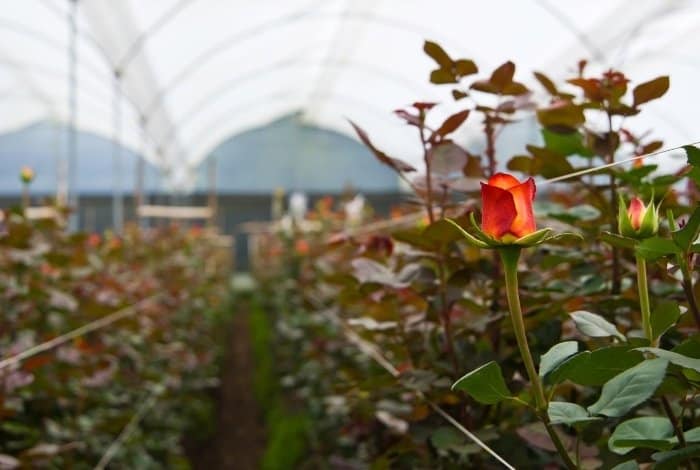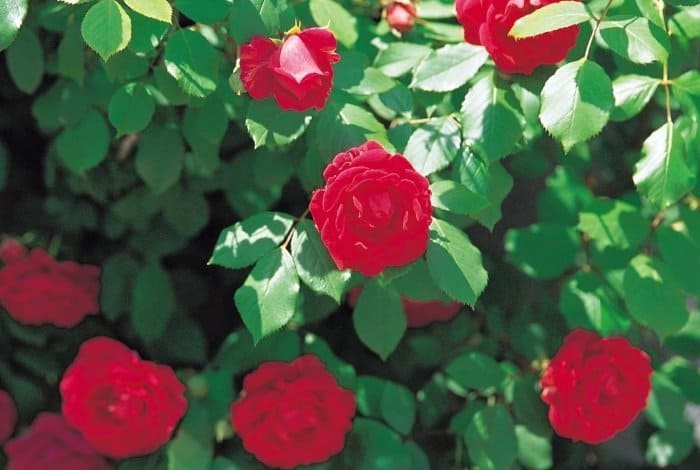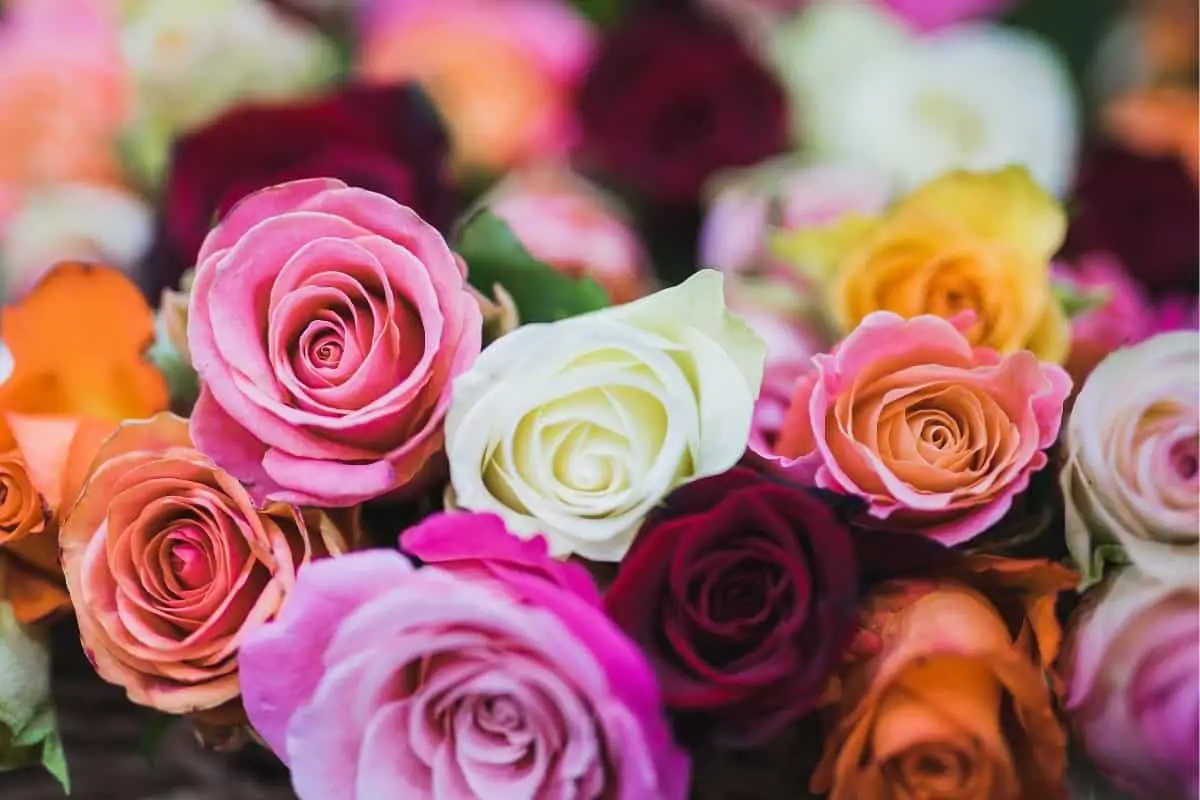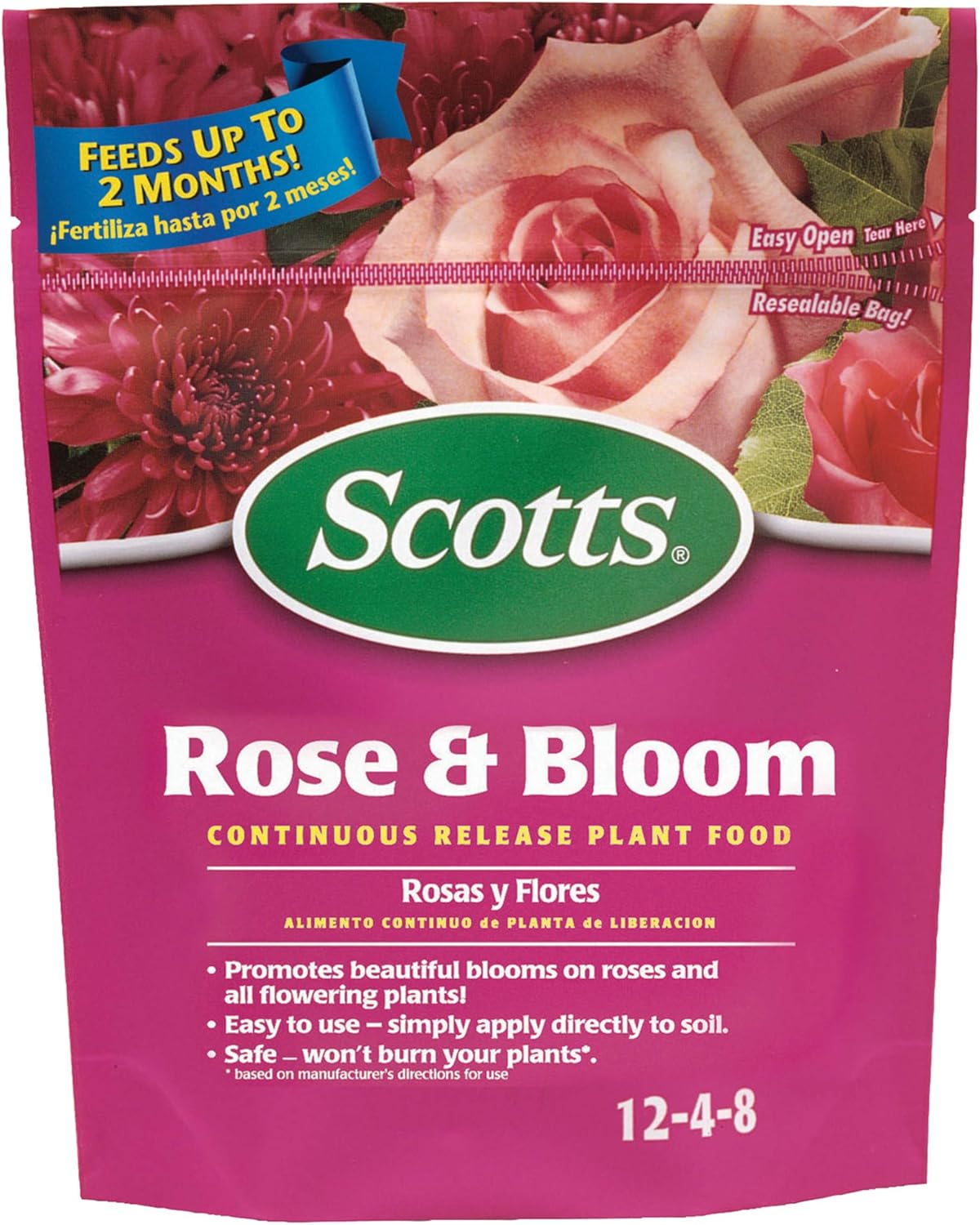Last Updated on March 16, 2023 by Cristina
If you’re wondering what is the best fertilizer for flower seedlings in the market today, then we have the answers for you! For seedlings to thrive, they need to be properly germinated and propagated for the best results. Strong vigorous flower seeds not only bloom better, but they also withstand disease and insect problems if given the proper care and maintenance throughout their lifespan.
Additionally, there are many nutrients that flower plants like roses need to bloom. These nutrients come in the form of fertilizers which should be balanced and selected accordingly to meet each flower seedling’s requirements. In this article, we provide you with essential information on the best fertilizer for flower seedlings and much more.
Just like the majority of landscape-proud people, having a thriving indoor or outdoor garden equals a happy gardener. However, for any bloomers to grow their best, feeding them essential nutrients should be a part of their maintenance schedule. Have a look at the useful information below to learn more about nurturing your seedlings into magnificent blooming glory.
The Benefits of Organic Fertilizer for Seedlings
The benefits of organic fertilizer for seedlings are plenty. Not only are they affordable, but these bloom enhancers help to improve the overall soil structure, increases the water retention properties of the soil which results in efficient root development, and add aeration and texture to enable the seedlings to breathe. Throughout the world, gardeners always look for ways to enhance the overall health of their plants. This is because feeding plants the correct nutrients will enable them to reach their full potential.
Organic fertilizer is also strictly regulated according to the terms of the US Department of Agriculture. Therefore, for the safest and most effective way to enhance the production and growth of seedlings, organic fertilizers are recommended because of their safety standards. This is inclusive of growing any plant, including shrubs, trees, vegetables, fruit, or flower seedlings.
Here are a few benefits of organic fertilizers for seedlings that are notable:
- You can avoid overfeeding your plants with the use of organic fertilizers because they absorb them slowly.
- Organic fertilizers afford your plant’s effective growth and efficient nutrient uptake.
- It is not as harsh as chemical fertilizers because it is made from natural plant extracts.
- Organic fertilizers are not easily washed away during irrigation occurrences and heavy rainstorms.
- These fertilizers won’t contaminate water or surrounding land areas.
- Organic fertilizers are the preferred choice in the foliar industry.
When to Start Fertilizing Seedlings
If you want to know when to start feeding seedlings, then take heed of the information that follows. It is vital to monitor the growth of your seedlings if you want to fertilize them at the correct time. This is because the fertilizing process for seedlings should begin when they grow to about three inches in length with visible true leaves. Thereafter, it is important to feed them weekly until they are transplanted.
Keep in mind that every plant has its needs. Important elements like potassium, nitrogen, and phosphorous are present in fertilizer which is needed by all plant varieties. These effective elements are usually listed as whole numbers on fertilizer packages, eg. 3-2-2, which is something you should look out for to ensure that you have the right type for your plant.
If you have planted grass seedlings, then applying fertilizer from February to March when active growth can be seen is recommended. Keep in mind that the presence of fertilizers often inhibits germination when it is worked into the soil and comes into contact with the seedlings.
How to Fertilize Seedlings – Best Fertilizer For Flower Seedlings
Let’s take a look at how to fertilize seedlings to enable the best growth. We have given you an indication above on when to fertilize seedlings, but how it’s done requires careful consideration before the application. Whether you have flowering or nonflowering plants, ensure that the soil has all the required elements before applying fertilizer.
This is because you will enhance whatever nutrients are available in the growing medium with the addition of fertilizer. Pepper and tomato seedlings also benefit from transferring them to individual containers after they reach the fertilizing stage. Using the best fertilizer for flower seedlings will afford you an abundant harvest.
Seedling fertilizer application Steps:
1. To begin, combine earthworm castings and a balanced organic fertilizer with your potting mix.
2. Then, add the fertilizer at a lower concentration than directed if it is the first application. Thereafter, you can follow the packaging instructions for future applications.
3. For the benefit of the health and growth of the seedlings, it is advisable to add some rock dust to your potting mix when fertilizing, This is because it will provide essential trace minerals and micro-nutrients that would be beneficial to the seedlings.
4. Thereafter, you can use the fertilizer-mixed soil in your plant pots and watch your seedlings thrive. Remember to fertilize as needed thereafter.
3 Important Nutrients for Roses
Like all other plants, roses need Potassium, Nitrogen, and Phosphorous to bloom. These are the three primary nutrients that every fertilizer should contain.

1. Potassium
Also known as Potash helps roses recover from diseases or stress. Plants that have potassium deficits develop yellow leaf margins and weak flower stems if not properly cared for.
2. Nitrogen
It encourages vigorous leaf growth which helps the rose plant develop healthy flowers. Keep in mind that healthy leaves equal healthy flowers! However, too much Nitrogen is also harmful because it can enhance foliage growth while producing fewer blooms. Insufficient Nitrogen results in yellow leaves, smaller blooms, and stunted growth.
3. Phosphorous
It promotes abundant flower production and root development. Phosphorous shortage results in weak flower stems and buds that won’t open, and cause the leaves to fall off.
Apart from these three important nutrients, roses also need other micro-nutrients like:
- Magnesium
- Calcium
- Sulfur
- Iron
- Manganese
- Zinc
When Do the Roses Need the Fertilizers?
For newly Planted Roses
Add rich organic matter like compost manure to the planting hole. You may add some fertilizer while planting for vigorous root development. Every 3 to 4 weeks, add some mild fertilizer to stimulate growth further. Using mild fertilizers will protect the new plants from leaf margins and prevent the root tips from burning.
For already Established Roses
Begin using the fertilizer as soon as new leaves emerge. A high-nitrogen fertilizer or alfalfa meal is best for the first application. This jump-starts leaf production while encouraging cane growth, resulting in an overall lush plant. When shoots are about 4-5 inches long, add a slow-release fertilizer to strengthen them.
It is advisable to continue adding more fertilizer every 2 to 4 weeks throughout the growing season. However, this application will also depend on the type of fertilizer you’re using.

For Container Roses
Due to frequent watering, nutrients leach out more quickly in container roses. You will need to add more fertilizer as often as possible to eliminate this problem.
Late Summer to Early Fall Roses
This season is sensitive to rose plants. For this reason, you should apply a slow-release fertilizer with a low nitrogen count to promote the next year’s blooms. Additionally, you should also take into account that 6 to 8 weeks before the average frost date, you should stop applying any more fertilizer to prevent overfeeding. This will also prevent new growth from getting frost damage.
Besides applying fertilizer to your roses be sure to:
- Prune them in good time
- Treat aphids and powdery mildew early enough
- Control Japanese beetle infestations
- And finally, improve your soil condition
Learn more about When is the best time to plant roses
Two Types of the Best Fertilizer for Roses
#1: Organic Rose Fertilizer
These come from animal or plant matter and are best for the plant, soil, and the environment. Organic rose fertilizers also have different nutritional advantages. These fertilizers can be used on their own or combined with other fertilizers. However, they are quite expensive to make or buy!
#2: Inorganic Rose Fertilizer
This fertilizer is also known as a synthetic or man-made fertilizer. Inorganic rose fertilizers are ready to use and conveniently available at a lower rate compared to organic ones. It is an excellent alternative to organic fertilizers.
What is the Best Fertilizer For Roses? A Review
Let us look at some of the best fertilizers for roses in the market today.
1. Miracle-gro water-soluble rose food
This rose plant food is excellent in promoting lush foliage and beautiful blooms. It works immediately after application to produce beautiful results. For best results, feed your roses every 7-14 days throughout the growing season.
Pros
- Ideal for use in all types of roses
- It is easy to use with a watering can or the Miracle-Gro Garden Feeder
- Endorsed by the American Rose Society
- Guaranteed not to burn the roses when used the right way
- Used for roses and all types of flowers
- It is economical; a little goes a long way – 1.5lbs feeds up to 600 square feet
Cons
- The packaging is smaller than described. You might have to buy more for a thorough application
2. Burpee Organic Rose and Bloom Granular Plant Food
This plant food feeds the rose plant and other flower seedlings fast while delivering long-lasting results. Roses are heavy feeders that need a constant supply of nutrients to maintain their growth and production. Burpee Organic provides a flush of nutrients that feed the plant for up to 3 months.
Pros
- It provides the rose plant with beneficial microbes that help keep the soil and plants healthy.
- Ideal for container roses, individual bushes, established beds, and other flowers
- Omri labeled for organic use
- Provides beneficial microbes that help promote spectacular blooms, color, and stronger root development
Cons
- Costs a bit higher than most rose fertilizers
3. Dr. Earth Organic Rose Fertilizer
This fertilizer produces remarkable roses and flowers as its nutrients are quickly released. It also continues to feed the plants for several months. It’s possible to use it in raised beds, during transplanting, or throughout the growing season.
Pros
- 100% natural and organic
- Provides the plant with high levels of primary plant nutrients
- Produces larger and more abundant blooms
- Loosens and improves the soil texture
- Feeds the plants for several months
- Contains probiotic seven champion stains that are beneficial to soil microbes
Cons
- Restricted in some states due to the level of phosphorous contained in the product. This is due to the concern that Phosphorous runoff poses a threat to water quality.
4. Scotts Rose and Bloom Continuous Release Plant Food
This product promotes beautiful blooms for roses and other flowering plants. It delivers a steady feeding to boost blooms of perennials and annuals alike. Simply apply it directly to the soil and let it feed the plants for up to 2 months. 1 cup of this product covers approximately 30 square feet. It is very easy to use – apply directly from the bag to the soil around the plants. Always water it well after application.
Pros
- This formula is safe; it does not burn your plants when used as directed.
- It is also economical. The application should happen every two months during the growing season.
- It promotes beautiful blooms on roses and all flowering plants
Cons
- It is not as thick as the other competing fertilizers
Conclusion – Best Fertilizer For Flower Seedlings
Flowering plants are classics as they’re always in demand! Whether for home, office, or wedding decor, flowers never go out of fashion. Therefore, growing them with the proper care and maintenance at home is always worth every effort! Ensure that you make use of the best fertilizer for flower seedlings to get favorable results.
FAQs
What type of fertilizer do roses prefer?
Roses are one of the most beautiful flowers that we can grow. They require a lot of care and attention so they can look their best. However, they need a lot more than just water and sunlight to flourish. They also require fertilizer to help them grow stronger and produce more flowers over time.
There are three main types of fertilizers for roses - water-soluble, slow release, and fast-release fertilizers. Water-soluble fertilizers dissolve quickly in water and release nutrients slowly over time. Slow release fertilizers dissolve slowly in water but release nutrients at a steady rate for up to two weeks. Fast release fertilizers dissolve quickly in water but release nutrients immediately after application for up to two hours or until the plant is fully saturated with the fertilizer solution.
Choosing the best type means choosing between these different kinds should be considered in relation to the type of roses that you're working with. You know your roses pretty well, so make sure to choose the fertilizer that will work best for you.
What is the most effective fertilizer?
Whether you are buying it for your backyard garden or your commercial farm, there are many types of fertilizers to choose from.
Some of the most popular types of fertilizers include organic fertilizer and chemical fertilizer. Organic fertilizers use natural ingredients to promote plant growth while chemical fertilizers use chemicals that kill off insects and weeds to promote plant growth.
There is also a type of fertilizer called mineral fertilizer where the minerals in the soil are replenished so plants can grow better.
Different types of fertilizers have been around for hundreds of years. But in recent times, artificial fertilizers like chemical fertilizers have been replaced by natural fertilizers like compost, manure, and green waste. The most effective fertilizer depends on what your plants need and what you can afford.
What is the best brand to fertilize roses?
The best fertilizer brand for roses is one that contains iron and nitrogen to help maintain healthy soil and flowers, as well as boost color and scent.
There are many types of fertilizers available for roses, but one brand that is most commonly used is Maxforce Supreme. It is a food-grade liquid fertilizer and has been trusted by professional gardeners for years.
What Maxforce Supreme does is it ensures that roses get the nutrients they need to grow (and stay healthy) even in drought conditions. It also makes sure their flowers are beautiful and lasts long. Roses need constant care, so this fertilizer can make your life easier!
FAQs
What type of fertilizer do roses prefer?
Roses are one of the most beautiful flowers that we can grow. They require a lot of care and attention so they can look their best. However, they need a lot more than just water and sunlight to flourish. They also require fertilizer to help them grow stronger and produce more flowers over time.
There are three main types of fertilizers for roses - water-soluble, slow release, and fast-release fertilizers. Water-soluble fertilizers dissolve quickly in water and release nutrients slowly over time. Slow release fertilizers dissolve slowly in water but release nutrients at a steady rate for up to two weeks. Fast release fertilizers dissolve quickly in water but release nutrients immediately after application for up to two hours or until the plant is fully saturated with the fertilizer solution.
Choosing the best type means choosing between these different kinds should be considered in relation to the type of roses that you're working with. You know your roses pretty well, so make sure to choose the fertilizer that will work best for you.
What is the most effective fertilizer?
Whether you are buying it for your backyard garden or your commercial farm, there are many types of fertilizers to choose from.
Some of the most popular types of fertilizers include organic fertilizer and chemical fertilizer. Organic fertilizers use natural ingredients to promote plant growth while chemical fertilizers use chemicals that kill off insects and weeds to promote plant growth.
There is also a type of fertilizer called mineral fertilizer where the minerals in the soil are replenished so plants can grow better.
Different types of fertilizers have been around for hundreds of years. But in recent times, artificial fertilizers like chemical fertilizers have been replaced by natural fertilizers like compost, manure, and green waste. The most effective fertilizer depends on what your plants need and what you can afford.
What is the best brand to fertilize roses?
The best fertilizer brand for roses is one that contains iron and nitrogen to help maintain healthy soil and flowers, as well as boost color and scent.
There are many types of fertilizers available for roses, but one brand that is most commonly used is Maxforce Supreme. It is a food-grade liquid fertilizer and has been trusted by professional gardeners for years.
What Maxforce Supreme does is it ensures that roses get the nutrients they need to grow (and stay healthy) even in drought conditions. It also makes sure their flowers are beautiful and lasts long. Roses need constant care, so this fertilizer can make your life easier!
Caroline is a gardener who loves to get down to the nitty–gritty of gardening. She proudly proclaims herself as a ‘dirt worshipper‘ and can often be found deep in the garden, covered in soil and singing to her plants. As a self–proclaimed ‘plant whisperer‘, Caroline believes that plants need love and attention just like any other living thing, and she loves to give them both. When she‘s not tending to her garden, you can often find her researching the latest gardening trends, or teaching others how to make their gardens thrive





